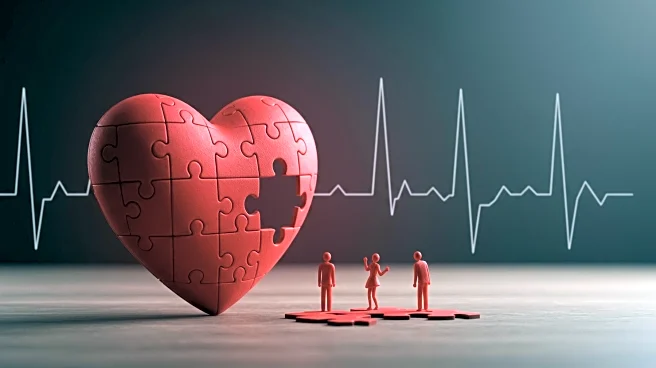What's Happening?
Bob Harper, a prominent figure from the reality television show 'The Biggest Loser,' recently shared his experience following a heart attack he suffered in 2017. In an interview with The Guardian, Harper revealed that while many colleagues from the show reached out to him during his recovery, Jillian Michaels, his co-star for 12 seasons, did not. Harper expressed that although they were not close friends, their long-term partnership on the show made her silence significant to him. Michaels had previously commented on Harper's health, attributing his heart attack to his diet and fitness routine, which she believed were not ideal given his family history of heart disease.
Why It's Important?
The revelation highlights the dynamics and interpersonal relationships within the entertainment industry, particularly among co-stars of long-running television shows. Harper's comments may influence public perception of Michaels, potentially affecting her reputation and future collaborations. Additionally, the discussion around Harper's heart attack brings attention to the importance of understanding personal health risks and the impact of lifestyle choices, which could resonate with audiences concerned about fitness and health. This story underscores the need for support systems in high-pressure environments like reality TV.
What's Next?
While Harper has moved on to focus on his health, adopting yoga as his primary form of exercise, the story may prompt Michaels to address the situation publicly, especially if it affects her public image. Fans of 'The Biggest Loser' might also reflect on the show's portrayal of health and fitness, possibly leading to discussions about the pressures faced by participants and trainers. The entertainment industry may see increased scrutiny regarding the support provided to individuals dealing with health crises.
Beyond the Headlines
This incident raises questions about the ethical responsibilities of public figures in supporting colleagues during personal crises. It also highlights the potential long-term effects of reality TV on personal relationships and mental health. The story may contribute to broader conversations about the portrayal of health and fitness in media and the responsibilities of influencers in promoting safe and sustainable lifestyle choices.










